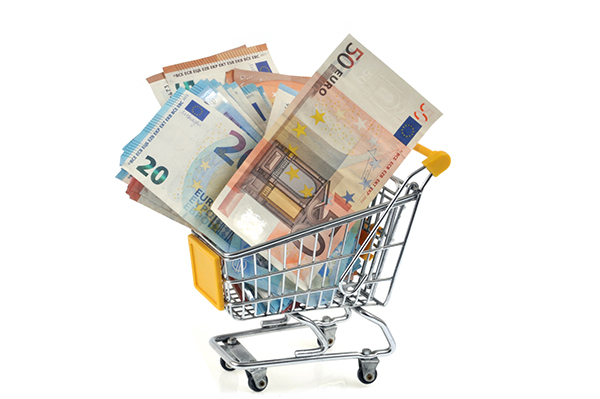The prices of groceries in the supermarket have risen by more than 11.3 per cent in the last six months, research by GfK showed. At the end of August 2021, customers paid 100 euros for a shopping cart of 55 basic foodstuffs, which included bread, fruit, milk, cheese, chocolate sprinkles, wine and toothpaste. Last month, they were paying 111.30 euros for the same cart. An average family with two children spends 7,000 to 8,000 euros worth of groceries per year.
The Central Bureau of Statistics (CBS) had previously estimated that groceries had become expensive by more than 6 per cent in the past three months. This was coupled with inflation of almost 10 per cent, the highest since 1976. This has caused the Dutch to become increasingly pessimistic about the economy; never before has consumer confidence plummeted like in the past month.
The reason for the increase
The rising prices are partly caused by the war in Ukraine and the resulting rising gas prices. Factories which make products and greenhouses where produce is grown are dealing with an increase in costs. Grain products are becoming more expensive due to high grain prices. Everything with a plug is becoming more expensive due to chip shortage, and everything that needs to be transported is becoming expensive due to the increased price of containers and transportation.
Where consumers are going
Due to the price rise, supermarket house brands have gained ground, according to GfK’s consumer panel of 10,000 households. The market share of house brands has grown by 6 per cent since the beginning of the year, while the turnover of premium brands has fallen by 5 per cent. Consumers with incomes below 2,100 euros per month more often switch to cheaper brands.
Consumers are also swarming cheap supermarkets like Aldo, Boni, Lidl, Dirk and Nettorama. These supermarkets have recorded a market share increase of 3 per cent. Consumers are also visiting different supermarkets more often looking for special offers. Striking is that even high-income consumers are now going to Aldi and Lidl for their groceries.
On the other hand, the price rise are bad news for greengrocers, fishmongers and other specialty shops. While they experienced rapid growth during the Covid period as a result of the closure of the catering industry, they are now experiencing a massive decline in turnover.
In March last year, fishmongers recorded a turnover increase of 30 per cent. In March this year, their sales have fallen by about 24 per cent. On the other hand, some specialty shops, such as bakeries and cheese shops, saw a growing turnover during the Covid pandemic, and are for the moment able to maintain the same high turnover.
When will prices fall?
Prices are expected to continue rising, because consumers have yet to experience the full breadth of the increase. There is a delay in passing on the cost increase to consumer prices. For example, although the prices of coffee, pasta and meat have already increased, there is still an increase to be expected before consumers can start thinking about price reduction.
Secondly, the price of gas will not drop much due to a lack of investment in the oil industry in recent years. The Head of Dutch economy at the Rabobank, Hugo Erken, is pessimistic: “The gas price may not drop that much at all, because the demand will remain high during the energy transition.”
It should also be remembered that the fall in prices of products varies depending on the product itself. “Products with fairly volatile price trends sometimes go and up down quickly,” said CBS Chief Economist Peter Hein van Mulligen.Products like potatoes and fruits experience rapid price changes. A better harvest quickly leads to more supply and fallingprices, and vice versa. However, it is different when it comes to processed products, where price changes tend to be moderate over time. These become expensive less quickly and also cheaper less quickly compared to foodstuffs.
Prices are also determined by how competitive the market is. Dutch supermarkets often compete against each other in so-called ‘supermarket wars’. What tends to happen is that they pass on price reductions to producers, instead of consumers– which of course is bad news for producers and may lead to them refusing to sell in the supermarket at all. The shipping industry is different: with limited competition in the transport sector, price rises are passed down to consumers.
The good news is that prices will drop in an environment of high competition. The bad news is that raw materials and production costs will remain high for a long time to come.
Written by Stephen Swai
